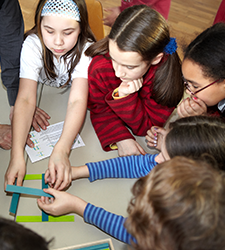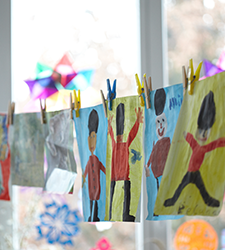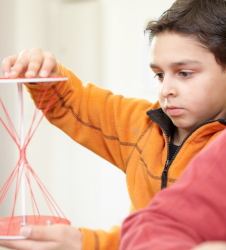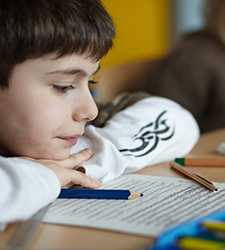Projects
Individual Development
To the project browser
NeuroBind
The project NeuroBind investigates the neural bases of the attachment system in children with different attachment styles using neuroimaging techniques (structural and functional magnetic resonance imaging). To activate their attachment system, children are shown different attachment relevant pictures and are asked to imagine themselves in secure and dangerous social situations. Correlations between brain activity and emotional reactions in response to those specific social situations are analyzed.

Schulreifes Kind
Scientific evaluation of a concept of compensatory educational offers for children in pre-school and primary school for the Ministry for Culture, Youth and Sports of the federal state of Baden-Wuerttemberg.

Pro KiEl
The Pro KiEl project targets an assessment of the effectiveness as well as underlying general and differential mechanisms of a family support programme. Findings from this evaluation study will be fundamental to the recommendation of interventions required by immigrant children and their parents regarding equitable participation in education.

SpröM
The project SpröM evaluated the longitudinal effects of kindergarten support programs with regard to linguistic and metalinguistic competencies.

ULe
The project ULe studies children’s out-of-school learning spaces in an urban context.

Hector
Hector Children’s Academies are extracurricular institutions that offer support to gifted children under the age of ten; they endorse a holistic approach. The aim of the project is a scientific monitoring of the support program. This includes the support of the implementation, the evaluation of the courses offered and the investigation of related scientific questions.

MEMO
The project MEMO analyzed verbal rehearsal-strategy development in children with and without dyslexia or dyscalculia.

Kosmos
Kosmos focused on the cognitive and socio-emotional development of children with dyslexia and/or dyscalculia.

Hate Crime
The project Hate Crime explores bias-motivated violence from an interdisciplinary perspective (law, ethics and psychology).

NEIS
Project NEIS is concerned with the development of self-regulatory skills – the ability to perform goal-oriented behavior – in children aged between 5 and 8 years.